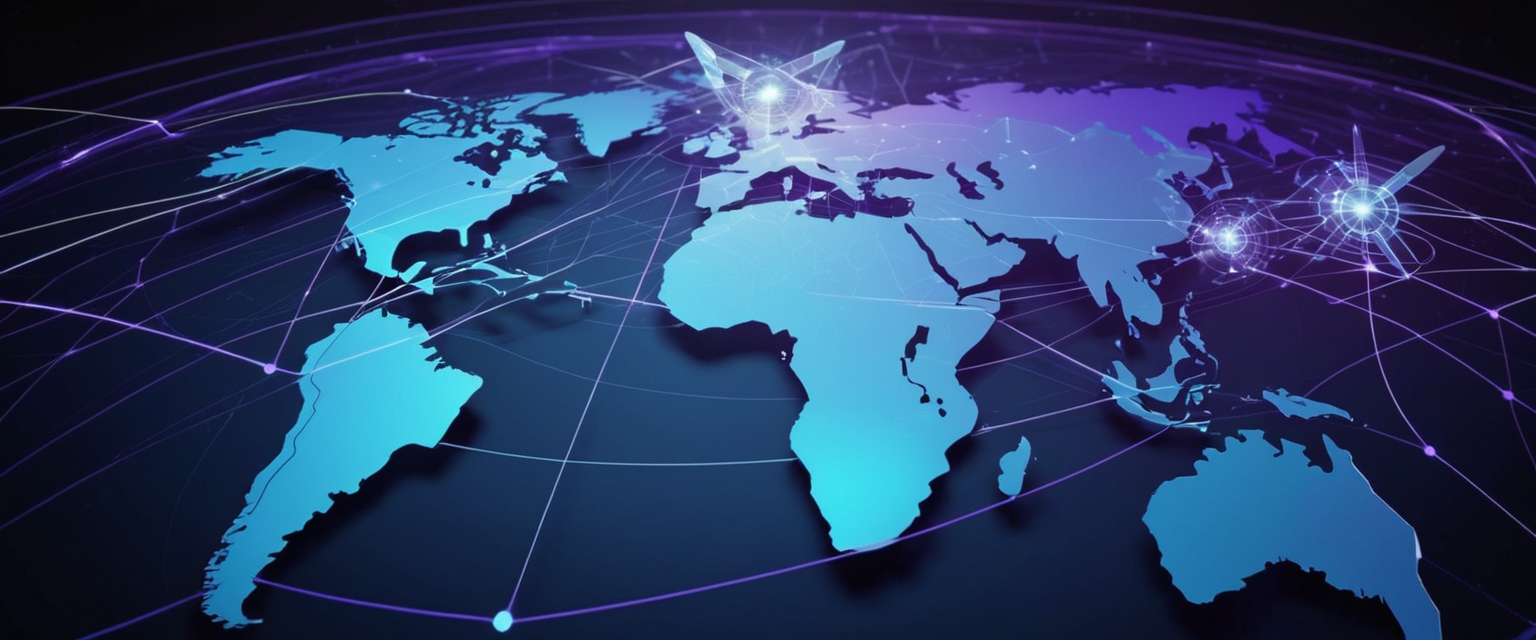
This comprehensive analysis examines how VPN jurisdiction and regional privacy laws critically shape the privacy and security protections available to users worldwide. The legal jurisdiction governing a VPN provider fundamentally determines which laws apply to its operations, particularly concerning data retention, user privacy rights, and mandatory cooperation with government surveillance programs. Countries with robust privacy frameworks and no mandatory data retention directives—such as Panama, Switzerland, and the British Virgin Islands—offer superior protection for VPN users compared to jurisdictions entangled in international surveillance alliances or burdened with invasive data collection mandates. Conversely, nations participating in the Five Eyes, Nine Eyes, or 14 Eyes intelligence-sharing agreements present significant privacy risks, as do countries like China, Russia, and Iran that heavily restrict or monitor VPN usage. This report explores the intricate relationship between jurisdiction and privacy, examining regional legislative frameworks, surveillance alliances, data retention obligations, and cross-border data transfer rules that collectively determine whether a VPN can truly deliver on its promise of user privacy. Understanding this jurisdictional landscape is essential for anyone seeking to select a trustworthy VPN provider or comprehend the broader implications of global data governance in an increasingly interconnected digital world.
Understanding VPN Jurisdiction and Its Critical Importance
The concept of VPN jurisdiction refers to the legal territory in which a VPN service provider is incorporated and operates. This geographical legal designation carries profound consequences because online businesses, including VPN providers, are bound by the legal requirements imposed by their base country. For VPN services specifically, jurisdiction determines whether providers can maintain a legitimate no-logging policy or whether they are compelled by law to retain user data, monitor online activities, and potentially share this information with government authorities. The importance of understanding jurisdiction cannot be overstated, as it represents the difference between genuine privacy protection and the illusion of privacy masking more invasive surveillance.
The fundamental principle underlying VPN jurisdiction is that companies must comply with the laws of the countries where they are legally incorporated, even if those laws conflict with the privacy interests of their users. This creates a critical vulnerability for users of VPN services based in jurisdictions with invasive surveillance legislation. For instance, a VPN provider based in a country with mandatory data retention directives faces a legal obligation to log user activities, including IP addresses and server usage records. Even if such a provider claims to operate a no-logging policy, the law may compel them to collect and maintain this data, which could subsequently be accessed by government agencies or disclosed in response to legal demands. This distinction between de facto and de jure no-logging policies—between what companies claim to do and what the law actually requires them to do—underscores why jurisdiction is so critical to VPN privacy.
Beyond data retention requirements, jurisdiction also determines whether a VPN provider can resist government demands for user information through warrant canaries, transparency reports, and other disclosure mechanisms. The best locations allow VPNs to operate without fears of government warrants, or at minimum, permit providers to disclose when they have received such warrants through warrant canaries that signal to users when legal pressure has been applied. In contrast, jurisdictions with gag order provisions can compel companies to provide information about users while simultaneously forbidding them from disclosing that they have done so, effectively silencing the company’s ability to warn affected users. This legal silencing represents a particularly insidious threat to privacy, as it prevents users from even knowing that their data has been compromised.
The jurisdictional landscape also interacts with a VPN provider’s technical infrastructure and operational practices. A jurisdiction with weak privacy protections and well-funded intelligence agencies creates a higher risk that the VPN provider’s offices, servers, and records could be subject to surveillance or seizure. Conversely, smaller countries that lack invasive intelligence capabilities and governments with strong privacy commitments present substantially lower risks that a VPN provider will face sustained pressure to compromise user privacy. However, jurisdiction alone does not determine privacy outcomes. A VPN provider based in a privacy-friendly jurisdiction could still compromise user privacy through inadequate security practices, poor encryption implementation, or deliberate cooperation with surveillance programs. Therefore, jurisdiction must be understood as one critical component of a broader privacy evaluation that includes technical security measures, corporate transparency, and verified no-logging policies.
The International Surveillance Alliances: Five Eyes, Nine Eyes, and 14 Eyes
Among the most significant factors affecting VPN jurisdiction and privacy is a nation’s participation in international surveillance alliances that enable systematic sharing of electronic intelligence and user data across borders. These alliances represent institutionalized frameworks for coordinating government surveillance at a scale that transcends individual national boundaries, creating a meta-jurisdictional threat to privacy that extends far beyond the borders of any single country. Understanding these alliances and their implications for VPN users is essential for making informed decisions about which jurisdictions offer genuine privacy protection.
The Five Eyes Alliance: The Foundation of Modern Signals Intelligence Cooperation
The Five Eyes alliance represents the oldest and most integrated of these intelligence-sharing agreements, consisting of the United States, the United Kingdom, Canada, Australia, and New Zealand. This coalition traces its origins to World War II and the UKUSA agreement, which established a framework for coordinating signals intelligence and electronic surveillance between the United States and United Kingdom. Over the subsequent decades, this original partnership expanded to incorporate Canada, Australia, and New Zealand, creating a formalized structure for collecting, analyzing, and sharing intelligence both domestically and internationally. The Five Eyes operates with a division of labor in which each nation assumes responsibility for particular geographic regions, with the United States concentrating on the Americas, the United Kingdom covering Europe, and Australia monitoring the Asia-Pacific region. The intelligence collected by each member is subsequently centralized and shared among all members, enabling a coordinated global surveillance apparatus that operates with remarkable scope and sophistication.
The legal and operational mechanics of the Five Eyes relationship create direct threats to VPN privacy for users whose data transits through member nations or whose VPN providers are incorporated in Five Eyes jurisdictions. Member nations have agreed to not spy on each other as adversaries, but leaked documents from Edward Snowden revealed that the nations do actively monitor each other’s citizens and share this intelligence amongst themselves. More concerning for VPN users, Five Eyes countries work together to send and enforce data retention notices, meaning that one nation can legally compel another to hand over logs of VPN users. Additionally, Five Eyes countries share surveillance data with each other and work together to enforce data retention mandates, creating a unified legal and operational framework that effectively transforms five separate national surveillance systems into a single integrated global surveillance apparatus.
The practical implications of Five Eyes membership for VPN jurisdiction are stark and well-documented. VPN users connected through servers located in Five Eyes countries face the risk that their data could be legally captured and shared among all five nations’ intelligence agencies. Even more concerning, a VPN provider based in one Five Eyes country faces legal obligations that may be enforced through cooperation with other Five Eyes nations. For example, if the United States government demands that a US-based VPN provider hand over user logs, and the provider refuses, US authorities could potentially seek cooperation from the UK, Canada, Australia, or New Zealand to pressure the provider through other legal channels. This multi-national legal pressure creates a substantially greater risk of data compromise than single-nation jurisdiction would suggest.
The Nine Eyes and 14 Eyes: Expanding Surveillance Networks
The Nine Eyes alliance extends the Five Eyes framework to include four additional nations: France, the Netherlands, Norway, and Denmark. This expansion was designed to extend collaboration in intelligence sharing to other European nations deemed trustworthy allies. The Nine Eyes operates with similar objectives to the Five Eyes—surveillance of global communications and sharing of intelligence on matters of national security, military intelligence, and counterterrorism. However, the Nine Eyes relationship is characterized as somewhat less integrated than the Five Eyes, with different protocols and procedures governing how intelligence is shared.
The 14 Eyes alliance represents the broadest of these surveillance networks, adding five additional nations to the Nine Eyes: Germany, Belgium, Italy, Spain, and Sweden. This expansion creates a surveillance coalition that spans most of Europe and the anglophone world, encompassing a majority of the world’s wealthiest and most technologically advanced nations. While the 14 Eyes is described as less formally integrated than the Five Eyes, it still represents a significant coordination of intelligence sharing and surveillance activities. Collectively, these three alliances—Five Eyes, Nine Eyes, and 14 Eyes—encompass most NATO members and several other allied democracies, creating a vast intelligence-sharing framework that covers the majority of the geopolitically significant regions on Earth.
For VPN users, the implications of 14 Eyes participation are concerning but less severe than Five Eyes participation. A VPN provider based in a 14 Eyes country faces potential pressure to comply with data requests and may be subject to mandatory data retention laws. However, the coordination and enforceability mechanisms within the 14 Eyes appear less developed than within the Five Eyes, potentially providing somewhat more protection than Five Eyes jurisdictions. Nevertheless, the general principle remains clear: VPN providers based in any of the Five Eyes, Nine Eyes, or 14 Eyes nations should be approached with skepticism by users prioritizing privacy, as these jurisdictions subject the providers to legal frameworks explicitly designed to facilitate surveillance and intelligence sharing that may ultimately compromise user privacy.
Regional Privacy Law Frameworks: GDPR, CCPA, LGPD, and Beyond
While surveillance alliances represent a critical threat to VPN privacy, regional privacy law frameworks tell a more nuanced story, in which some jurisdictions have implemented comprehensive legal protections that constrain both government surveillance and corporate data exploitation. Understanding these regional frameworks is essential, as they establish the baseline legal protections that apply to all data processing activities, including those by VPN providers. However, these frameworks create complex interactions with surveillance alliances and data retention mandates that can undermine their protective intent.
The European Union’s General Data Protection Regulation
The General Data Protection Regulation, enacted in 2018, represents the world’s most comprehensive and stringent data protection framework. Applicable to all organizations processing personal data of European Union residents, regardless of where the organization is incorporated, GDPR establishes robust individual rights including the right to access personal data, the right to deletion, the right to data portability, and the right to object to automated decision-making. GDPR defines personal data expansively to include any information relating to an identified or identifiable natural person, including IP addresses. The regulation imposes mandatory security requirements, breach notification obligations, and substantial penalties for violations, with fines reaching up to 20 million euros or 4 percent of annual turnover, whichever is higher.
For VPN providers, GDPR creates a complex legal environment in which strong privacy protections compete with government surveillance imperatives. The regulation prohibits most cross-border data transfers except to countries deemed to have adequate data protection. However, several EU member states are simultaneously members of the 14 Eyes alliance, creating tension between GDPR’s privacy protections and intelligence agencies’ surveillance mandates. Some EU member states, such as Switzerland, have further distinguished themselves by refusing to adopt the EU Data Retention Directive following its initial enactment in 2006, citing privacy concerns. Switzerland’s Federal Data Protection Act provides particularly strong protection for individual privacy, has never imposed mandatory data retention on VPNs, and Switzerland remains outside the EU surveillance framework while maintaining high privacy standards.
The California Consumer Privacy Act and State-Level Privacy Frameworks
The United States lacks a comprehensive federal privacy law comparable to GDPR, instead relying on a fragmented patchwork of sector-specific regulations and state-level privacy laws. However, the California Consumer Privacy Act (CCPA), enacted in 2018 and effective from 2020, represents a significant attempt to establish privacy protections at the state level that approach GDPR’s scope. CCPA grants California residents the right to know what personal information is collected, delete personal information, opt out of the sale or sharing of their data, and receive non-discriminatory treatment when exercising these rights. Importantly, CCPA classifies IP addresses as personal information if they can be “reasonably linked, directly or indirectly, with a particular consumer or household,” effectively treating IP addresses as personal data.
Recognizing CCPA’s limitations, California voters approved the California Privacy Rights Act (CPRA) in 2020, which further strengthened privacy protections by expanding individual rights, establishing a dedicated privacy enforcement agency (the California Privacy Protection Agency), and imposing stricter fines for violations. Other states including Colorado, Connecticut, Utah, and Virginia have subsequently enacted similar comprehensive privacy laws, creating a mosaic of state-level privacy frameworks that apply to VPN providers and other organizations that collect data from state residents. However, these state laws lack the international enforcement mechanisms of GDPR and face legal challenges from commercial interests, potentially limiting their ultimate effectiveness. Additionally, the absence of a federal privacy law means that VPN providers operating in the United States face inconsistent legal requirements across different states, creating compliance challenges and leaving significant gaps in privacy protection at the national level.
Brazil’s General Data Protection Law and Latin American Privacy Frameworks
Brazil’s General Data Protection Law (LGPD), enacted in 2020, represents another major global privacy framework that has served as a model for privacy laws throughout Latin America. The LGPD generally aligns with GDPR in its core principles and imposes substantial penalties for violations, including fines up to 2 percent of a company’s total revenue in Brazil in the previous year or up to 50 million reals (approximately 9.25 million USD), whichever is higher. Importantly, the LGPD does not mandate strict data localization requirements but does require companies to adopt adequate technical and administrative measures for data protection, and cross-border data transfers are allowed only if the receiving country ensures an adequate level of data protection.
Beyond Brazil, Latin American countries are increasingly enacting comprehensive data protection laws. Argentina was the first Latin American country to receive an adequacy determination from the European Commission, indicating that its data protection framework meets European standards. Mexico, while lacking a single overarching data protection law, enforces sectoral data protection rules that vary by industry. Throughout Latin America, governments are asserting greater control over data processing and asserting data sovereignty principles that require data localization for sensitive government or citizen data. For VPN providers operating in Latin America, this fragmented but increasingly stringent regulatory environment creates compliance obligations that vary by country and sector, but generally trend toward stronger privacy protections.
Asian Privacy Frameworks: Japan, Singapore, and Emerging Standards
Asia presents a diverse privacy landscape in which some nations have enacted comprehensive data protection laws while others lack such frameworks entirely. Japan’s Act on Protection of Personal Information (APPI), which came into effect in 2020, establishes privacy protections that share some similarities with GDPR, including requirements for obtaining consent before processing personal data and implementing security measures. However, APPI differs from GDPR in significant respects, including the absence of a right to data erasure and the absence of requirements for maintaining records of processing activities. Singapore’s Personal Data Protection Act (PDPA) similarly imposes privacy protections including requirements for transparency, consent, and accountability in data handling, but with a narrower scope and weaker individual rights than GDPR.
Notably, compliance with one Asian framework does not guarantee compliance with another, nor does it ensure GDPR compliance. This means that VPN providers operating across multiple Asian jurisdictions must tailor their practices to each nation’s specific requirements rather than implementing a universal privacy standard. Some Asian nations have not yet enacted comprehensive data protection laws, creating gaps in privacy protection for their citizens. Additionally, several Asian nations maintain close relationships with China, raising concerns about government surveillance and data sharing that extend beyond formal legal frameworks to encompass informal intelligence sharing arrangements.
Protect Your Digital Life with Activate Security
Get 14 powerful security tools in one comprehensive suite. VPN, antivirus, password manager, dark web monitoring, and more.
Get Protected NowThe Best VPN Jurisdictions for Privacy Protection
Having examined the threats posed by surveillance alliances and the protective frameworks provided by regional privacy laws, we can now identify jurisdictions that offer the strongest privacy protections for VPN users. The most privacy-friendly jurisdictions share several characteristics: they lack mandatory data retention directives, they are not members of the Five, Nine, or 14 Eyes alliances, they maintain strict privacy protection laws, and they lack invasive intelligence capabilities or histories of government surveillance.
Panama: Privacy-Friendly Jurisdiction Outside Intelligence Alliances
Panama has emerged as a leading jurisdiction for VPN providers seeking to maintain strong privacy protections without government interference. The country has no mandatory data retention directives that apply to VPNs, meaning that providers can legitimately maintain a no-logging policy while complying with local regulations. Beyond legal frameworks, Panama’s strategic advantages include being geographically well out of reach of invasive jurisdictions like the United States, the United Kingdom, and the European Union. The country lacks well-funded intelligence agencies that might otherwise pressure VPN providers to provide user information, reducing the risk of warrant-based data demands. Additionally, Panama’s government does not have a documented history of snooping on companies based in its country, creating a favorable legal and operational environment for privacy-focused VPN services. Notable VPN providers based in Panama include NordVPN, which is widely recognized as providing robust privacy protection for users.
British Virgin Islands: Autonomy and Privacy Protection
The British Virgin Islands represent another excellent jurisdiction for VPN providers, offering strong privacy protections combined with operational independence. While the BVI is an overseas territory of the United Kingdom, it functions as an autonomous nation with its own legislature and code of laws. Critically, the BVI lacks its own foreign intelligence apparatus and is not a member of any of the Five Eyes, Nine Eyes, or 14 Eyes alliances. This independence means that VPN systems based in the BVI are not subject to surveillance laws enabling intelligence agencies to legally access or intercept customer data. Additionally, the territory imposes no data retention laws, allowing VPN providers to maintain watertight no-logging policies while remaining fully compliant with local regulations. Major VPN providers including ExpressVPN and Surfshark are based in the BVI, leveraging its privacy-friendly legal environment to offer strong protections to their users.

Switzerland: Strong Privacy Laws and Political Independence
Switzerland stands out as a unique jurisdiction combining EU-level privacy protections with independence from EU surveillance frameworks. Switzerland’s constitution guarantees individual privacy as a fundamental right. The country’s Federal Data Protection Act requires companies to inform users when collecting personal data and specifies the purposes for data collection. Crucially, Switzerland is not an EU member state and therefore is not subject to the European Union Data Retention Directives, which would otherwise require VPN providers to maintain extensive user logs. Instead, Switzerland has explicitly refused to enforce the EU’s Data Retention Directive, following its repeal in 2014, and the country’s supreme court has invalidated mandatory data retention requirements on privacy and confidentiality grounds. Additionally, Switzerland is explicitly not a member of the Five Eyes, Nine Eyes, or 14 Eyes surveillance alliances, underscoring the nation’s commitment to privacy and independence from these overreaching jurisdictions. ProtonVPN, a highly reliable VPN service, is based in Switzerland and leverages the country’s strong privacy framework to provide robust protections to its users.
Romania: EU Privacy Law Without Data Retention
Romania presents an interesting case of an EU member state that has achieved stronger privacy protections than most other EU nations by rejecting certain invasive directives. Although Romania is part of the European Union and benefits from GDPR’s privacy protections, the country does not comply with the EU’s Data Retention Directive following an annulment by Romania’s supreme court, which cited privacy and confidentiality rights violations as reasons for rejecting the directive. This decision, which stands in contrast to many other EU nations’ implementations of data retention mandates, demonstrates Romania’s high regard for citizens’ privacy rights and creates a favorable environment for VPN providers with strict no-logs policies. Additionally, Romania is not a member of the Five Eyes, Nine Eyes, or 14 Eyes alliances, placing it outside the major surveillance networks. Romania’s combination of EU-level privacy protections with freedom from national data retention mandates makes it an excellent jurisdiction for privacy-focused VPN services, including CyberGhost VPN.
Iceland: Privacy Leadership in the Nordic Region
Iceland deserves mention as an additional jurisdiction offering strong privacy protections, though it has received less attention in VPN provider discussions than the previously mentioned jurisdictions. The country maintains strong commitment to internet freedom and privacy, with a data protection authority possessing robust enforcement powers. Iceland’s combination of advanced digital infrastructure, strong privacy laws, and lack of participation in invasive surveillance frameworks makes it suitable for privacy-focused VPN providers. However, its position as a member of the European Economic Area (EEA) means that Iceland is subject to certain EU data protection requirements, including GDPR, though it maintains more independence than EU member states.
The Worst VPN Jurisdictions: Surveillance, Restrictions, and Data Retention
In stark contrast to privacy-friendly jurisdictions, certain nations have implemented legal frameworks that directly undermine VPN privacy or restrict VPN usage altogether. Understanding these jurisdictions is critical for VPN users who need to avoid providers based in such locations, and for residents of such jurisdictions who must carefully evaluate the risks of VPN use.
The Five Eyes Countries: Mandatory Surveillance and Data Sharing
The Five Eyes nations—the United States, United Kingdom, Canada, Australia, and New Zealand—represent the worst jurisdictions for VPN privacy despite being wealthy democracies with established legal systems. Each of these nations has implemented mandatory data retention laws, surveillance frameworks, or law enforcement demands that create substantial risks for VPN providers and their users.
The United Kingdom has emerged as particularly concerning following passage of the Investigatory Powers Act in November 2016, colloquially known as the “Snooper’s Charter”. This legislation imposes mandatory data retention directives onto ISPs and communication providers based in the UK, including potentially VPNs. The legislation allows government agencies including the police, MI5, MI6, GCHQ, the Home Office, the Department of Health, and HM Revenue and Customs to access communications metadata without warrants. Additionally, the UK maintains laws enabling the government to serve companies with warrants and gag orders, compelling them to provide information about users while forbidding them from disclosing that they have done so. Any VPN based in the UK could legally be forced to hand over records of users’ IP addresses and online activities, making the UK one of the worst countries for a VPN to be based.
Australia has similarly implemented invasive data retention laws comparable to the UK’s framework. Australia’s Telecommunications (Interception and Access) Amendment (Data Retention) Act 2015 mandates that telecommunications service providers, potentially including VPNs, retain metadata including telephone numbers, timestamps, and IP addresses for two years. This metadata is accessible to law enforcement agencies without warrant. Additionally, law enforcement can force companies to share access to encrypted messages without users’ knowledge.
The United States, while lacking a unified federal data retention law, has demonstrated willingness to demand data from VPN providers and has compelled VPN providers to collect user information in response to law enforcement investigations. Notably, IPVanish, a prominent US-based VPN service that claimed to operate under a no-logs policy, was forced to collect and provide user data to an FBI investigation in 2016. This case demonstrated that even VPN providers claiming strict no-logging policies may be compelled by US law enforcement to collect data retroactively, effectively undermining their privacy promises. Additionally, the US government has engaged in mass surveillance programs including PRISM, which leverages cooperation from telecoms and tech companies to collect and share user data. VPN providers based in the US face potential liability for civil lawsuits involving copyright infringement, and at least one US-based VPN (TorGuard) was compelled to block torrenting on all US servers as part of a settlement agreement.
Canada and New Zealand, while somewhat less aggressive in pursuing VPN data than the US or UK, remain Five Eyes members and therefore subject to surveillance frameworks and data sharing agreements that compromise user privacy relative to non-Five Eyes jurisdictions.
China, Russia, and Other Repressive Regimes: VPN Restrictions and Government Oversight
Beyond the Five Eyes, certain nations have moved to actively restrict or ban VPN usage altogether, creating severe risks for both VPN providers and users. China maintains some of the strictest VPN regulations in the world, employing a system known as the Great Firewall to control internet access and block thousands of foreign websites. While VPN use is technically not illegal in China, only government-approved VPN services are permitted, and most foreign VPNs are blocked. Users who attempt to employ unauthorized VPNs to bypass restrictions and access blocked content face potential government scrutiny and legal consequences.
Russia has similarly enacted restrictive VPN legislation. In 2017, Russia passed legislation banning VPNs from allowing users to access content that the government deems illegal. VPN providers are required to comply with government data requests and block access to restricted sites, making it extremely difficult for users to bypass censorship. Non-compliant VPNs are often blocked, and users who attempt to access banned sites via VPN can face penalties. Recent research has found that China, Iran, Turkmenistan, and Russia ban more VPNs than any other countries globally, with China ensuring through cooperation with Apple that VPN apps are not even available on Apple’s App Store.
The United Arab Emirates presents another concerning jurisdiction for VPN usage. While VPN use is technically legal in the UAE if used for legitimate business purposes, using a VPN to hide an IP address for the purpose of committing a crime or preventing its discovery is illegal, with penalties including imprisonment and substantial fines. The ambiguity of what constitutes a “crime” for purposes of this provision means that even ordinary activities like accessing foreign streaming services or bypassing content restrictions could potentially expose users to legal risk.
India has emerged as particularly problematic for VPN users in recent years. In 2022, India’s Computer Emergency Response Team (CERT-In) issued new cybersecurity rules requiring VPN providers with physical servers in India to keep user logs for at least five years, even after users cancel their service. This requirement is so stringent that many major VPN providers, including ExpressVPN, withdrew their physical servers from India rather than compromise their no-logging policies. Users in India attempting to use VPNs now face the reality that any VPN provider with physical infrastructure in India must maintain logs that could be accessed by government authorities, severely compromising privacy protections for this population.
Turkey, Iran, and Middle East Restrictions
Turkey has increasingly restricted VPN usage in recent years, frequently blocking access to social media platforms, news sites, and foreign services, particularly during political events or crises. To prevent users from circumventing these restrictions, the Turkish government has aggressively blocked VPNs. While VPN use is not technically illegal, it is closely monitored, and the government has authority to block services that do not comply with its regulations. Iran similarly maintains low levels of VPN availability due to government censorship, with major VPN providers including ExpressVPN currently blocked in Iran’s Google Play Store.
Data Retention Laws: Legal Requirements That Undermine Privacy
Underlying many of the jurisdiction-specific privacy concerns discussed above are data retention laws—legal requirements that mandate organizations retain specific categories of data for predetermined periods. These laws represent perhaps the most direct legal obstacle to genuine no-logging VPN policies, as they compel VPN providers to collect and maintain user data even when corporate policy would otherwise prohibit such collection.
The Evolution and Impact of Mandatory Data Retention Legislation
Mandatory data retention laws emerged in the early 2000s as governments sought to address national security and law enforcement concerns by requiring internet service providers and telecommunications companies to maintain records of user activities. The European Union enacted the Data Retention Directive in 2006, which mandated that member states require telecommunications providers to retain traffic data for periods of six months to three years. However, this directive proved so invasive that it was invalidated by the European Court of Justice in 2014, which ruled that the mandatory retention of vast amounts of communication data constituted a disproportionate interference with privacy rights.
Following the EU Data Retention Directive’s invalidation, individual European nations took divergent approaches. Some nations, including Romania and Iceland, explicitly rejected data retention mandates on privacy grounds. Others, including Germany, France, and Spain, implemented narrower data retention requirements tailored to specific purposes, with retention periods ranging from ten weeks to twelve months depending on the country. The European Union’s General Data Protection Regulation, enacted in 2018, subsequently established a framework requiring that data retention be limited to what is necessary and proportionate for specified purposes.
Data Retention in the United States
The United States presents a fragmented approach to data retention, with different retention requirements applying to different sectors and types of data. Healthcare providers must retain medical records for approximately six years under HIPAA, financial institutions must retain records for three to seven years depending on the specific regulation, and corporate entities must retain business records for seven years under Sarbanes-Oxley. Notably, the US lacks a unified federal data retention mandate applicable to internet service providers or VPN providers, yet certain states have begun implementing their own requirements. California’s CCPA and CPRA establish baseline privacy protections but do not impose universal data retention mandates, instead requiring that data be retained only as long as necessary for specified purposes.
Data Retention in Australia and the Five Eyes
Australia’s data retention framework stands among the most aggressive globally. The Telecommunications (Interception and Access) Amendment (Data Retention) Act 2015 mandates that ISPs and potentially VPN providers retain metadata including IP addresses, timestamps, and phone numbers for two years, with this data accessible to law enforcement without warrant. This creates a direct conflict with genuine no-logging policies, as Australian law explicitly requires VPN providers with infrastructure in the country to maintain detailed logs of user activity.
India’s Extreme Data Retention Requirements
India’s Computer Emergency Response Team (CERT-In) rules, implemented in 2022, impose some of the most stringent data retention requirements globally. VPN providers with physical servers in India must retain comprehensive user logs including names, service usage duration, IP addresses, email addresses, registration timestamps, and the purpose for using the service. Critically, this data must be retained for at least five years even after users cancel their service. These requirements are so demanding that they have effectively driven major international VPN providers from the Indian market, leaving users with limited options for genuine privacy protection.

Data Retention in Latin America and Asia
Brazil’s General Data Protection Law does not mandate strict data localization but requires companies to adopt adequate technical and administrative measures for data protection. While this does not impose universal retention mandates comparable to Australia or India, it does create obligations for data security and cross-border transfer safeguards. Throughout Asia, data retention requirements vary substantially, with some nations imposing minimal requirements while others maintain stricter frameworks.
Cross-Border Data Transfer Implications
Beyond data retention within individual jurisdictions, the regulation of cross-border data transfers represents another critical dimension of the jurisdictional privacy landscape. Data transfer across international borders triggers unique privacy concerns, as data becomes subject to the laws of multiple jurisdictions simultaneously, and international agreements may govern which nations can legally demand access to that data.
GDPR Framework for Cross-Border Data Transfers
The European Union’s General Data Protection Regulation establishes a comprehensive framework governing cross-border data transfers from EU member states to countries outside the EU. The GDPR permits transfers only when the destination country has been granted an “adequacy determination” from the EU Commission, indicating that its data protection framework meets European standards. For countries without adequacy determinations, organizations must implement “appropriate safeguards” including Standard Contractual Clauses, binding corporate rules, or additional measures that contractually commit the data recipient to maintain EU-level privacy protections. These transfer restrictions mean that VPN providers and other organizations operating in the EU must carefully evaluate where they store or process user data, as transfers to jurisdictions without adequate privacy protections constitute legal violations.
China’s PIPL and Data Localization Requirements
China’s Personal Information Protection Law represents a different approach to cross-border data transfer regulation, emphasizing data sovereignty and national control. The PIPL requires separate consent for international data transfers, notification of the foreign recipient and transfer purposes, and in many cases, a Personal Information Protection Impact Assessment comparable to GDPR’s Data Protection Impact Assessments. Notably, transfers may be authorized only when approved by national authorities, when required for executing international agreements, or when needed for public policy purposes. This framework prioritizes national control over data flows and effectively restricts most international data transfers unless explicitly authorized by government authorities.
Brazil’s LGPD Approach to International Data Transfers
Brazil’s General Data Protection Law permits cross-border data transfers only if the receiving country ensures an adequate level of data protection, mirroring GDPR’s approach. Transfers require either consent, contracts, or specific legal provisions to justify the international movement of data. The LGPD’s regulatory authority, the ANPD, can investigate and fine companies for non-compliance with transfer requirements, creating substantial enforcement pressure on organizations handling Brazilian personal data.
Implications for VPN Users and Providers
These cross-border transfer requirements create complex operational challenges for VPN providers. A VPN provider based in Panama might maintain servers in multiple countries to optimize performance and content delivery, but this arrangement creates complex legal obligations. If the provider serves EU residents, it must ensure that any transfer of EU user data complies with GDPR’s cross-border transfer framework. Similarly, a VPN provider serving Chinese residents must navigate PIPL’s stringent transfer requirements, potentially requiring government approval for any data processing outside China. These overlapping jurisdictional requirements mean that truly global VPN providers must maintain sophisticated compliance infrastructure to navigate the complex landscape of international data transfer laws.
Emerging Trends and Future Developments in VPN Legislation
The VPN jurisdictional landscape continues to evolve as governments worldwide grapple with balancing national security concerns, law enforcement needs, and individual privacy rights. Several trends are likely to shape this landscape in coming years.
Increased Global Regulation and Standardization
One clear trend is the increasing move toward comprehensive privacy legislation worldwide, following models established by GDPR and other frameworks. Countries across Latin America, Asia, and Africa are enacting their own data protection laws, gradually creating a more uniform (if not consistently high) baseline for privacy protection globally. However, this standardization exists alongside increasing government demands for data access and surveillance capabilities, creating tension between privacy protection and security imperatives.
Expansion of VPN Restrictions in Authoritarian Regimes
A troubling concurrent trend involves increasingly aggressive VPN blocking and restriction in authoritarian regimes and countries with repressive governments. China, Russia, Iran, and other nations have systematically blocked VPN applications from app stores and implemented technical measures to block VPN protocols. These restrictions are likely to intensify as governments seek to maintain control over information flows and prevent citizens from circumventing censorship.
Rising Importance of Technical Privacy Solutions: RAM-Only Servers
In response to increasingly stringent data retention requirements and government demands for user data, VPN providers have adopted advanced technical solutions designed to make data retention impossible even if required by law. RAM-only servers represent a significant advancement in this direction, as volatile RAM automatically wipes all data when servers are powered down, making it technically impossible for VPN providers to retain logs even if they wanted to. Major providers including NordVPN and Surfshark have transitioned their server fleets to RAM-only architecture, providing additional assurance beyond policy statements that user data cannot be retained or accessed.
International Agreements and Emerging Frameworks
As the international nature of the internet makes unilateral national regulation increasingly ineffective, governments may pursue international agreements to create cohesive legal frameworks for VPN use. However, such agreements might extend surveillance capabilities rather than protect privacy, as nations work together to compel VPN providers to share user data across borders. Alternatively, international agreements might establish baseline privacy standards, though the track record of international privacy cooperation suggests such agreements often reflect the least protective common denominator rather than leading-edge privacy advocacy.
VPN Usage Trends and the Practical Privacy Landscape
Understanding the jurisdictional landscape of VPN privacy requires also considering practical trends in VPN adoption and usage. Recent research indicates that VPN usage among Americans declined from 46 percent in 2024 to 32 percent in 2025, representing a significant reversal from previous years. However, this overall decline masks important variations: younger users aged 18-29 report VPN usage rates approaching 40 percent, and privacy-conscious users continue prioritizing VPN services offering strong privacy protections and verified no-logging policies.
The most popular VPN brands in the US market are NordVPN, Proton VPN, and ExpressVPN—all of which are strategically based in privacy-friendly jurisdictions (Panama, Switzerland, and British Virgin Islands respectively) rather than Five Eyes countries. This preference reflects users’ implicit or explicit understanding that VPN jurisdiction matters for privacy protection. However, approximately 28 percent of VPN users still rely on free VPN options despite known security risks, and approximately 8 percent use VPNs solely for work purposes. These statistics suggest that while a committed privacy-conscious user base continues to prioritize jurisdictional factors when selecting VPN providers, broader VPN adoption patterns may undervalue jurisdictional considerations.
Regional Privacy Jurisdictions: Key Takeaways
The relationship between VPN jurisdiction and privacy protection remains one of the most critical factors determining whether VPN users actually achieve meaningful privacy in an increasingly surveilled digital landscape. The analysis presented in this report demonstrates that jurisdiction is not merely a technicality for corporate registration purposes; rather, it fundamentally determines which laws apply to VPN providers, whether users’ data can be legally retained and accessed by governments, and whether VPN providers can resist or disclose government pressure to compromise user privacy.
The jurisdictional landscape reveals a stark divide between nations committed to privacy protection and those that have embraced surveillance as a national security strategy. Privacy-friendly jurisdictions including Panama, the British Virgin Islands, Switzerland, Romania, and Iceland offer VPN users substantially greater protection than Five Eyes nations, Five Eyes-allied 14 Eyes members, or authoritarian regimes that restrict or monitor VPN usage. These privacy-friendly jurisdictions combine strong legal protections against surveillance with explicit refusal to participate in international surveillance alliances, creating genuinely secure environments for VPN providers to operate under strict no-logging policies.
In contrast, the Five Eyes nations, despite their status as established democracies, have implemented some of the world’s most invasive data retention and surveillance frameworks. These nations have explicitly designed legal mechanisms to intercept and access user communications, and they coordinate these surveillance activities across national borders through formal intelligence-sharing agreements. A VPN user whose provider is based in a Five Eyes nation faces substantially greater risks than users of providers based in privacy-friendly jurisdictions, as the legal framework explicitly contemplates and enables government access to user data that the VPN provider maintains.
The broader context of global privacy regulation reveals an even more complex landscape. As individual nations enact their own data protection frameworks—from GDPR to CCPA to LGPD to emerging Asian privacy laws—they create overlapping and sometimes contradictory requirements for VPN providers and other organizations. This fragmentation creates both opportunities and risks: opportunities in that privacy-conscious users can choose providers based in jurisdictions with protective frameworks, but risks in that no single provider can satisfy all requirements simultaneously, and any provider accepting users from multiple jurisdictions must navigate competing legal demands.
For VPN users, the practical implications of this jurisdictional analysis are clear: select VPN providers based in privacy-friendly jurisdictions outside surveillance alliances when possible; evaluate providers’ technical security measures including RAM-only servers and cryptographic practices; verify no-logging policies through independent audits and transparency reports; maintain awareness of your own jurisdiction’s VPN regulations and potential restrictions; and recognize that VPN jurisdiction is one critical component of privacy protection but not sufficient by itself to ensure privacy against determined and well-resourced adversaries. For policymakers, this analysis suggests that privacy protection cannot be achieved through individual national action alone, as international surveillance alliances and cross-border data flows undermine unilateral national privacy legislation. Effective privacy protection requires international cooperation to establish binding agreements that genuinely constrain surveillance and protect privacy, rather than merely facilitating intelligence sharing between governments.
Ultimately, the jurisdictional landscape of VPN privacy reflects broader struggles between competing values in democratic societies: security imperatives versus individual privacy rights, national sovereignty versus international cooperation, and government authority versus individual liberty. As these struggles continue to unfold globally, VPN jurisdiction will remain a critical factor determining the practical effectiveness of VPNs as privacy protection tools in an increasingly surveilled world.






